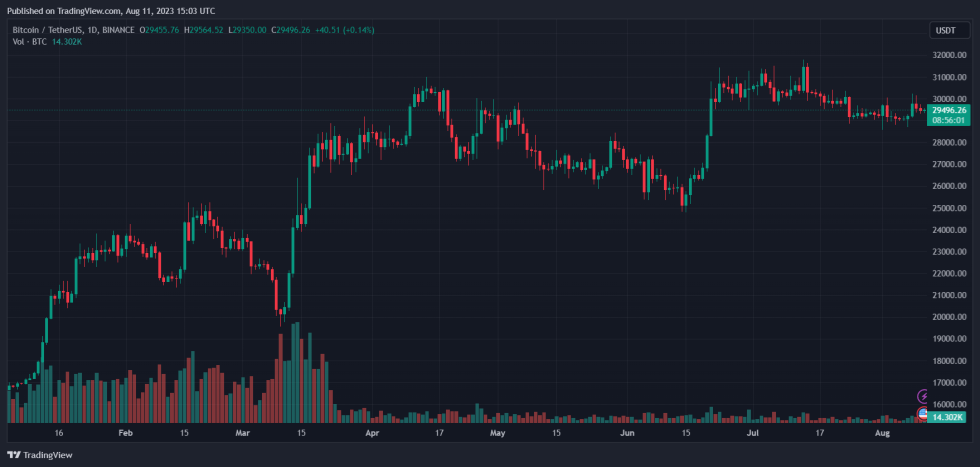
This summer’s high temperatures have impacted different sectors, including Bitcoin mining in the United States. Several companies in the sector have been shutting down their operations and selling power back to the grid for a profit.
Mainstream media outlet Bloomberg highlighted this activity in a recent report on Bitcoin miner Riot. The company has been selling back some of its power when high temperatures lead to increased demand.
The report stated the following on Bitcoin mining when providing a definition:
Bitcoin mining is an electricity-intensive process in which miners use expensive specialized computers to validate records of transactions on the blockchain and earn rewards in the form of the token.
Bitcoin Mining Bad For The Environment?
According to Bloomberg, Riot made over $13 million in power curtailment credits in 2023’s second quarter by selling power to the Electric Reliability Council of Texas (ERCOT). In total, the Bitcoin mining company saw $49,7 million in revenues from their mining activities and a total of $76,6 million in profits.
Daniel Batten, co-founder of CH4 and Bitcoin advocate, noticed the report and pointed out some facts “overlooked” by Bloomberg. Firstly, Batten goes beyond the business point of view and the profits generated by Riot and highlights the importance of giving back energy to the grid at times of stress.
Rather than using their energy to validate new blocks on the Bitcoin blockchain, miners such as Riot voluntarily sell it back to ERCOT. Batten said this activity constitutes an “essential part of reaching net-zero emissions, based on the International Energy Agency (IEA).
However, mainstream media has been negatively biased toward BTC mining and related activities by classifying the sector as “energy intensive” and linking their activities to global warming. For example, CNBC recently posted a report called “Why does Bitcoin use so much energy?”
In the eight-minute report, Bitcoin’s consensus algorithm Proof-of-Work (PoW) is called a “problem” while matching the BTC mining yearly energy consumption to that of certain countries. However, as Batten stated, new reports are shedding fresh data on BTC’s energy consumption and its potential to foster a new era of expansion for renewable energy.
The Bitcoin mining industry has been aiding ERCOT and other entities in the United States alone to balance power demand and supply. The sector is “uniquely and ideally suited to demand response” and could help create more incentives for companies to rely on renewable energy.
In addition, Bitcoin mining can bring up prices where supplying energy falls into negative territory and bring down costs for the average citizen. Batten concluded:
Since Bitcoin miners came in force onto the ERCOT grid, there have been no blackouts. Former ERCOT interim CEO Brad Jones hailed Bitcoin miners as one of the contributing factors to this achievement.
As of this writing, Bitcoin trades at $29,500 as the cryptocurrency continues to trade in a tight range around $30,000.

Cover image from Unsplash, chart from Tradingview


















